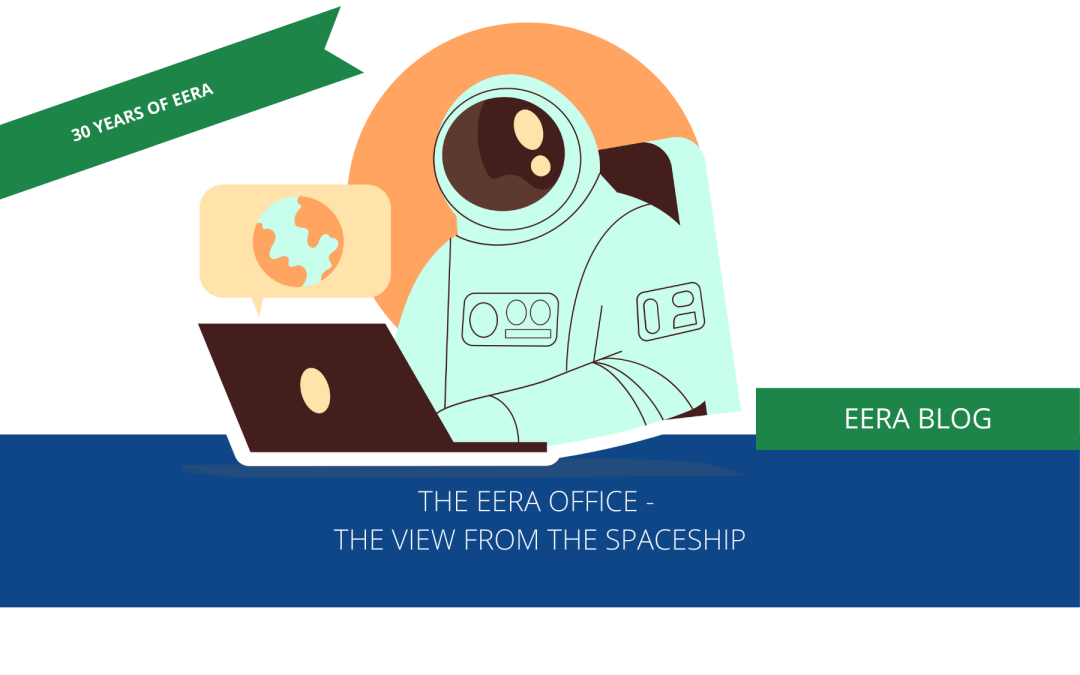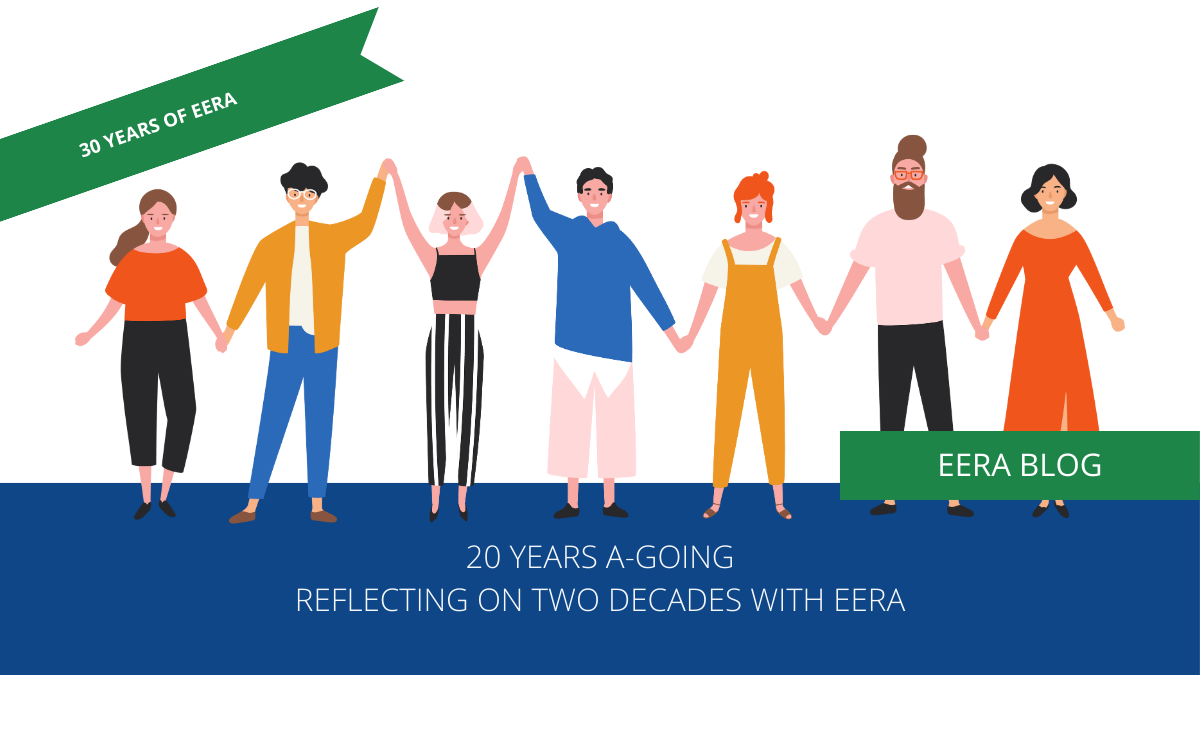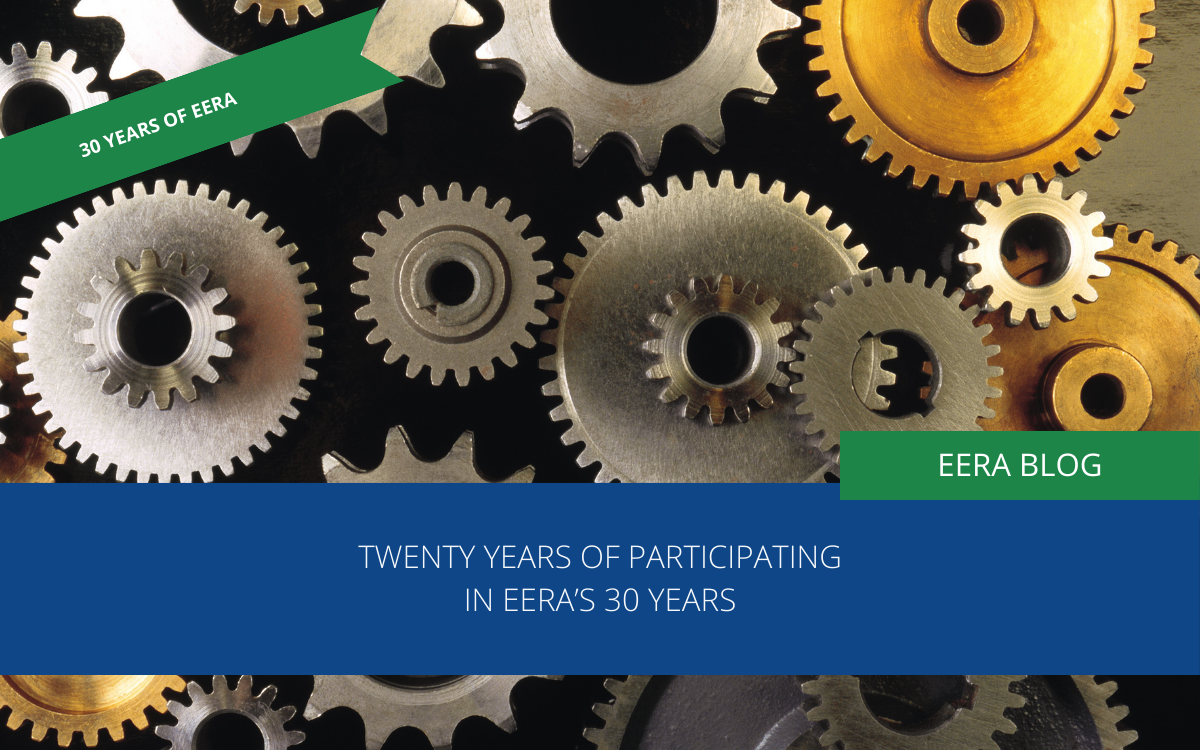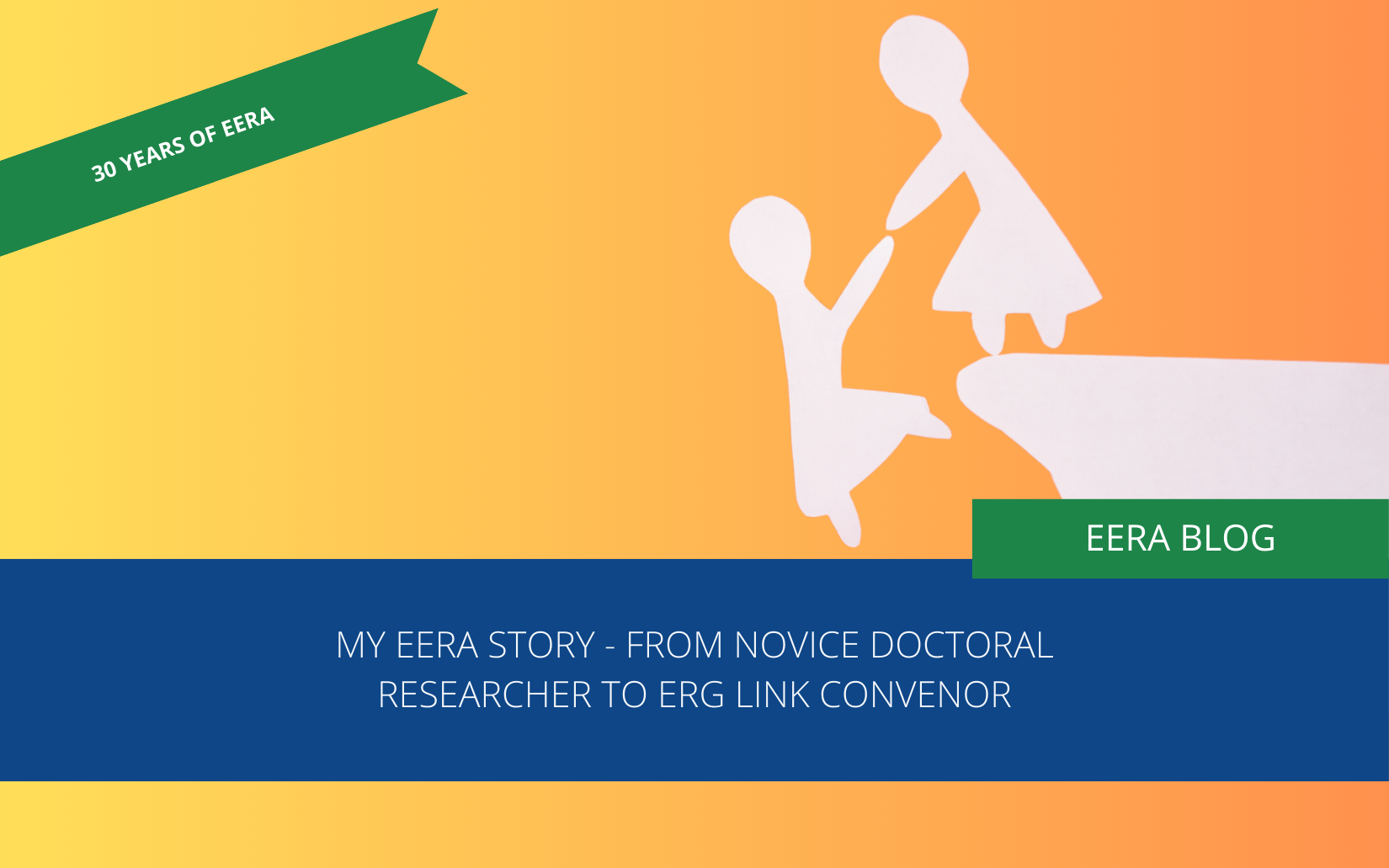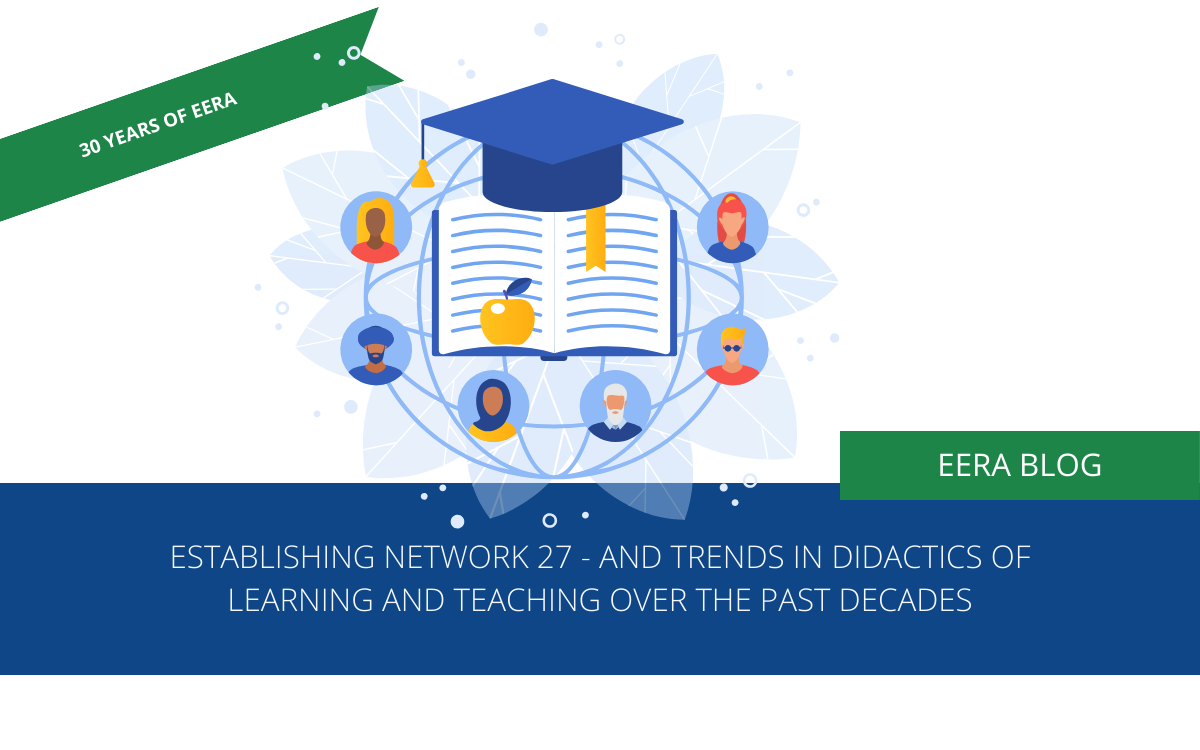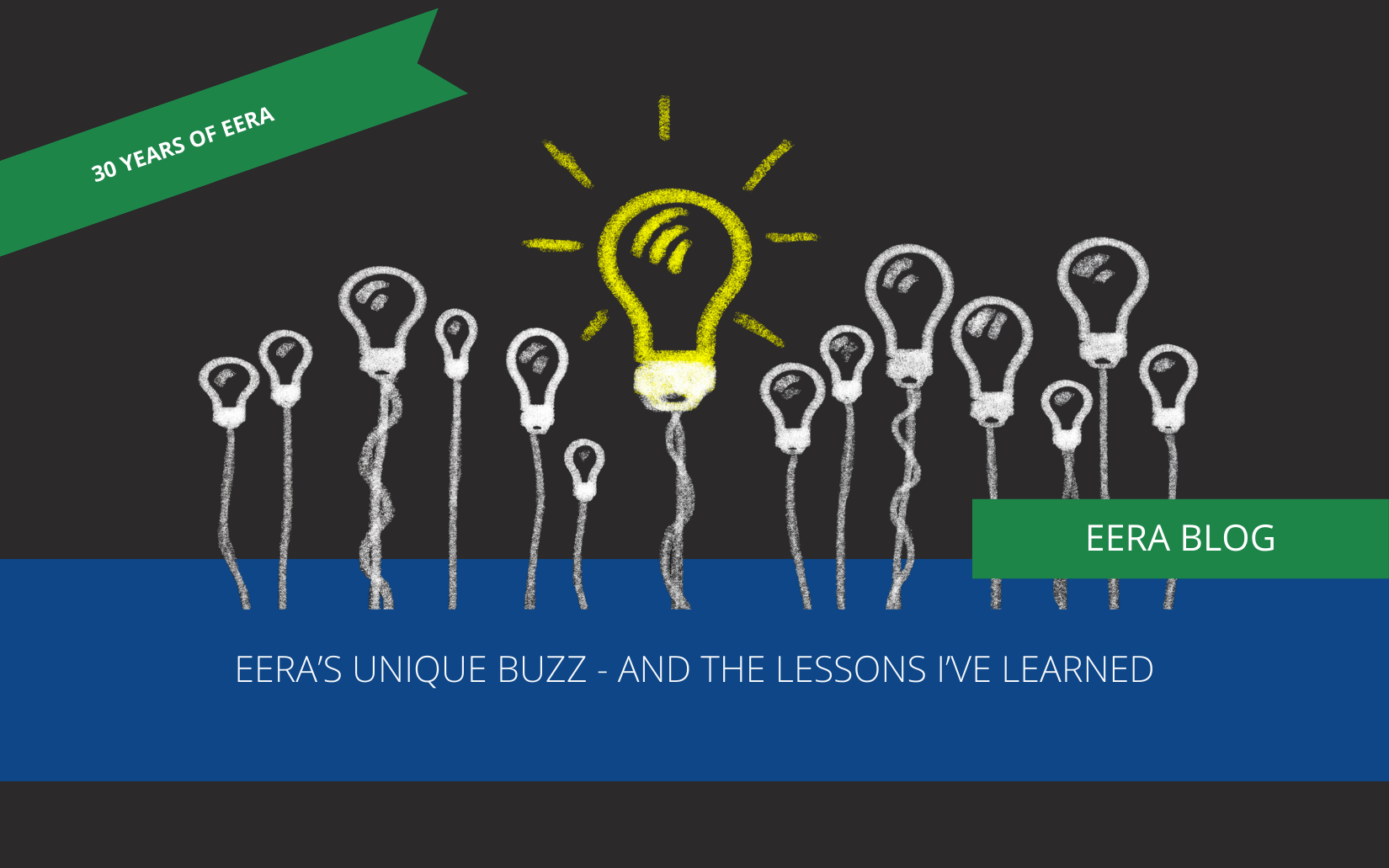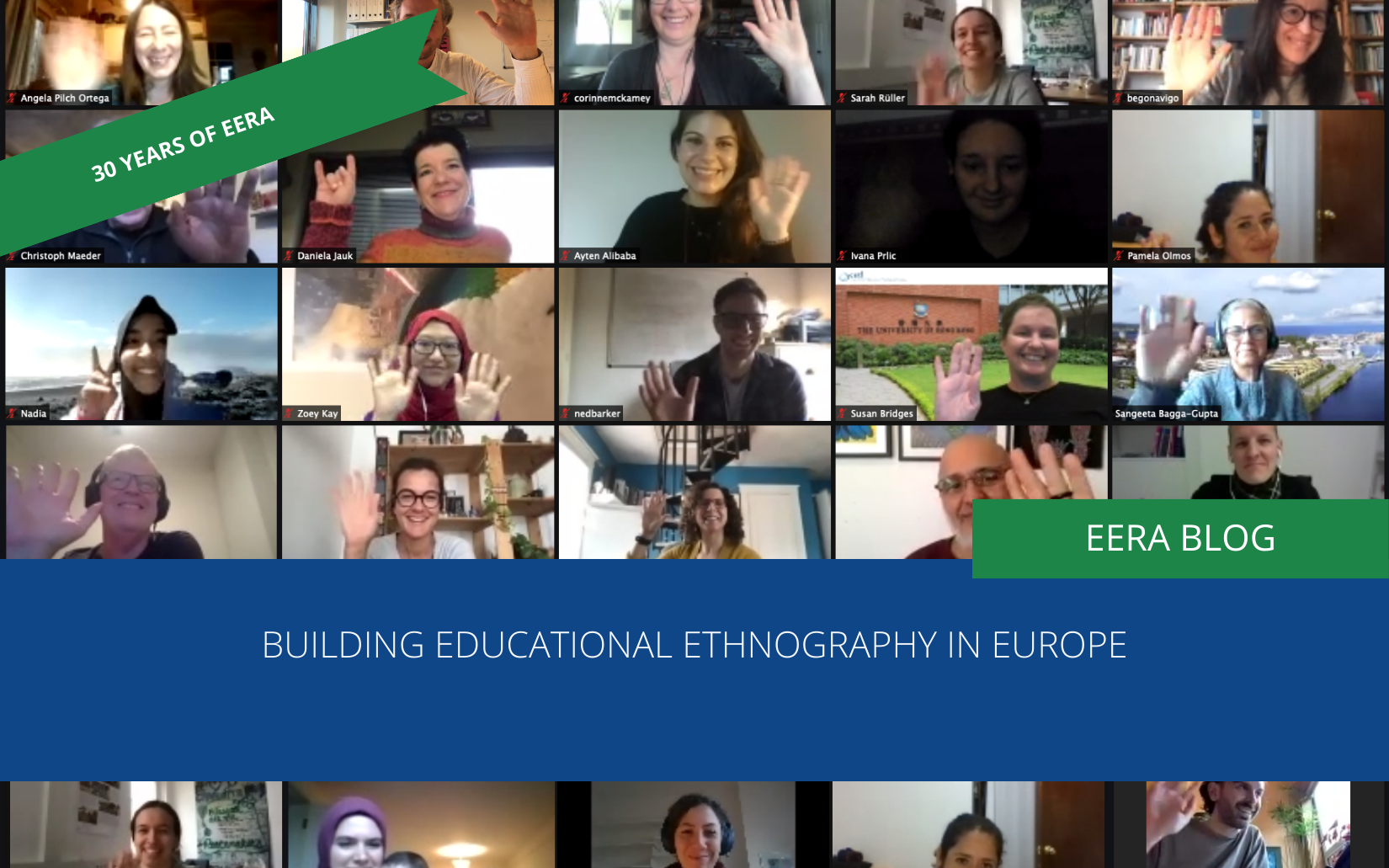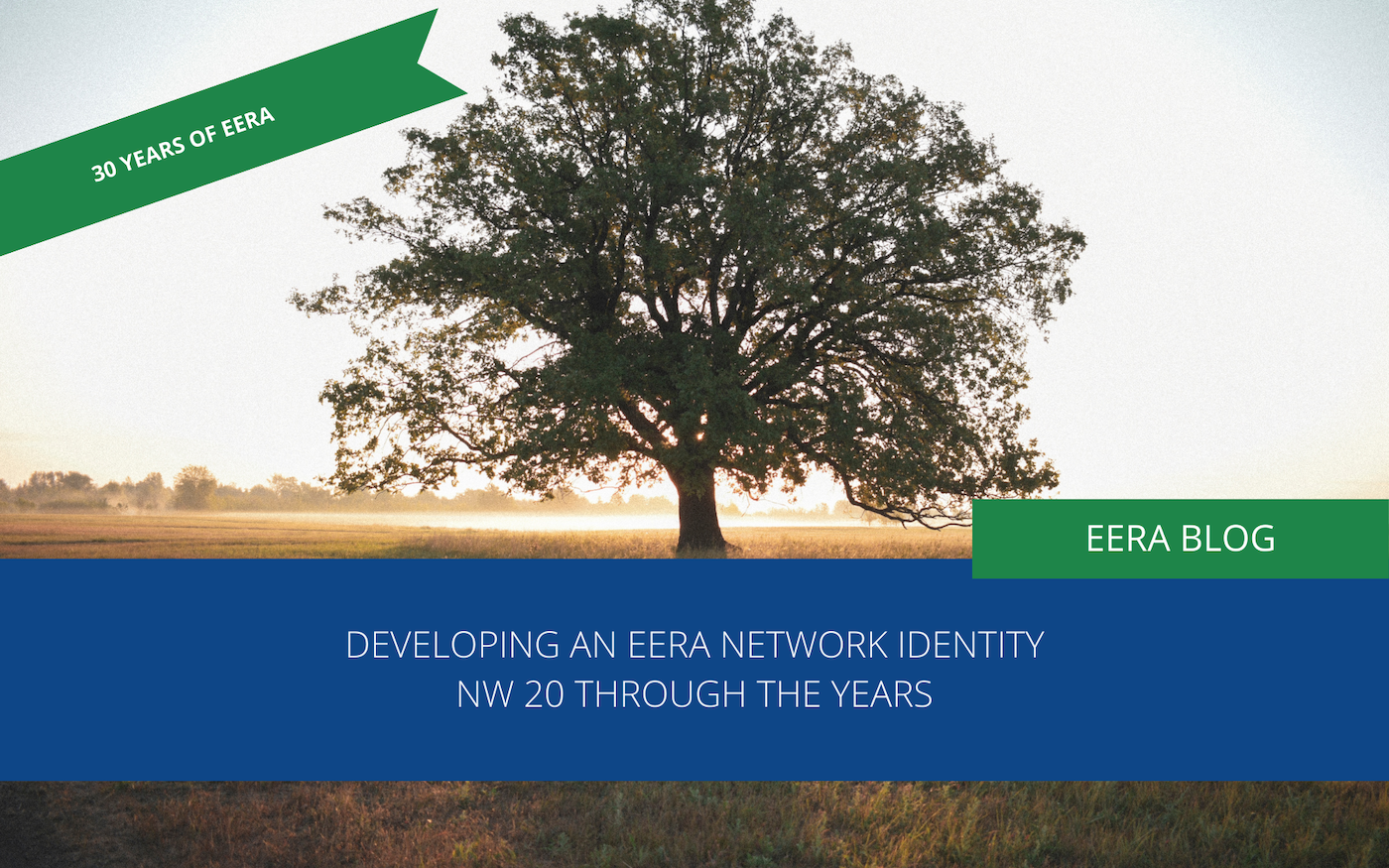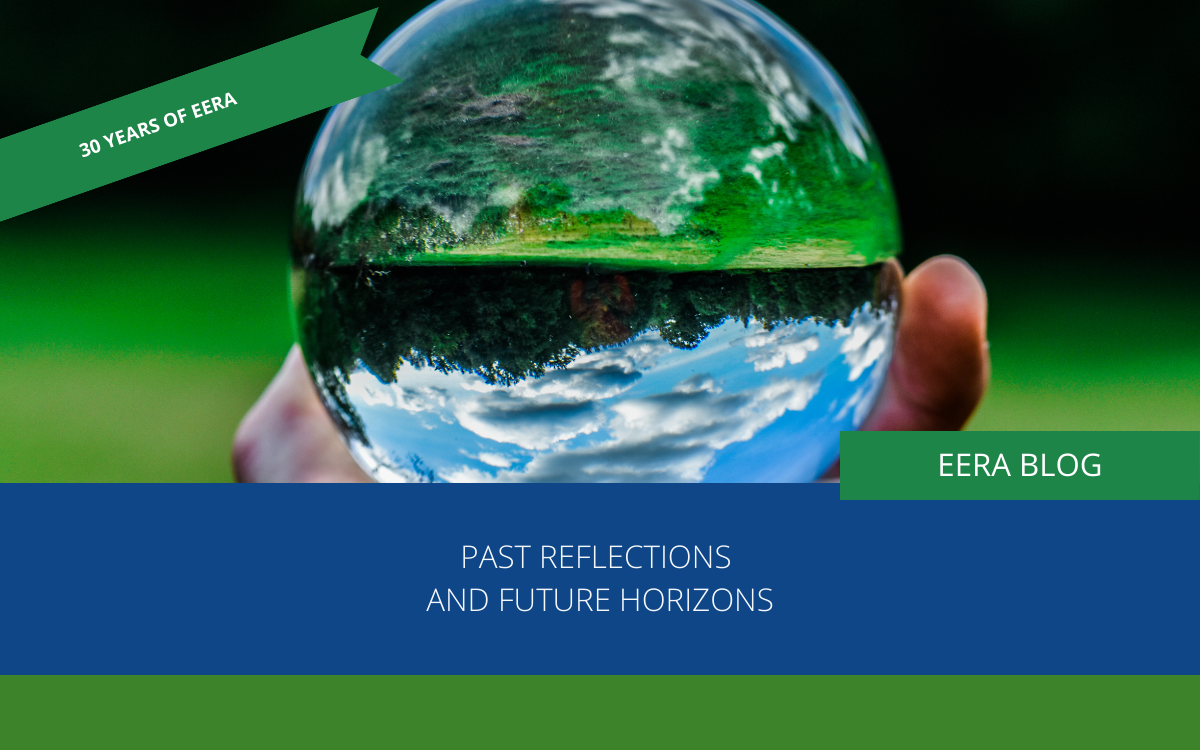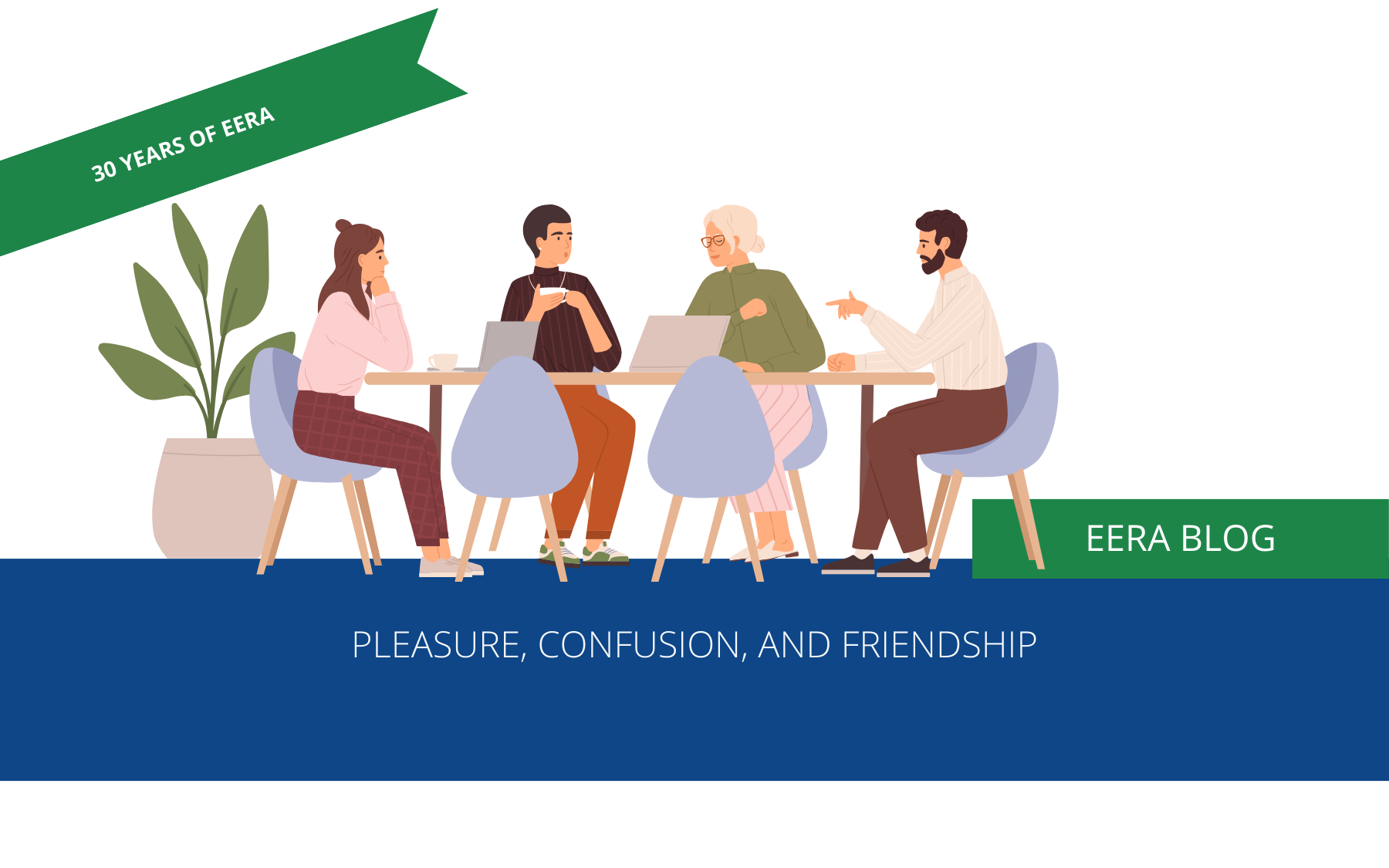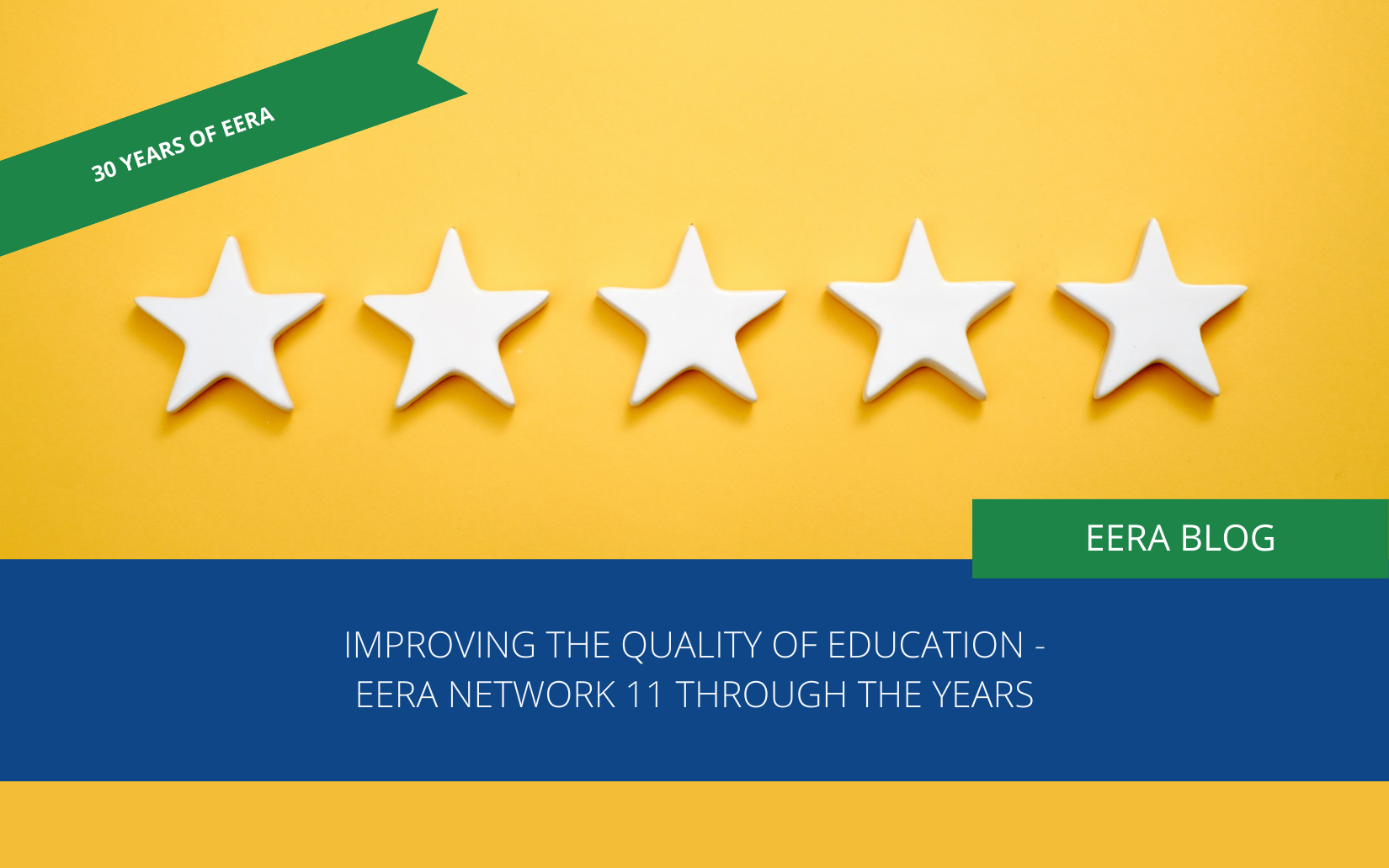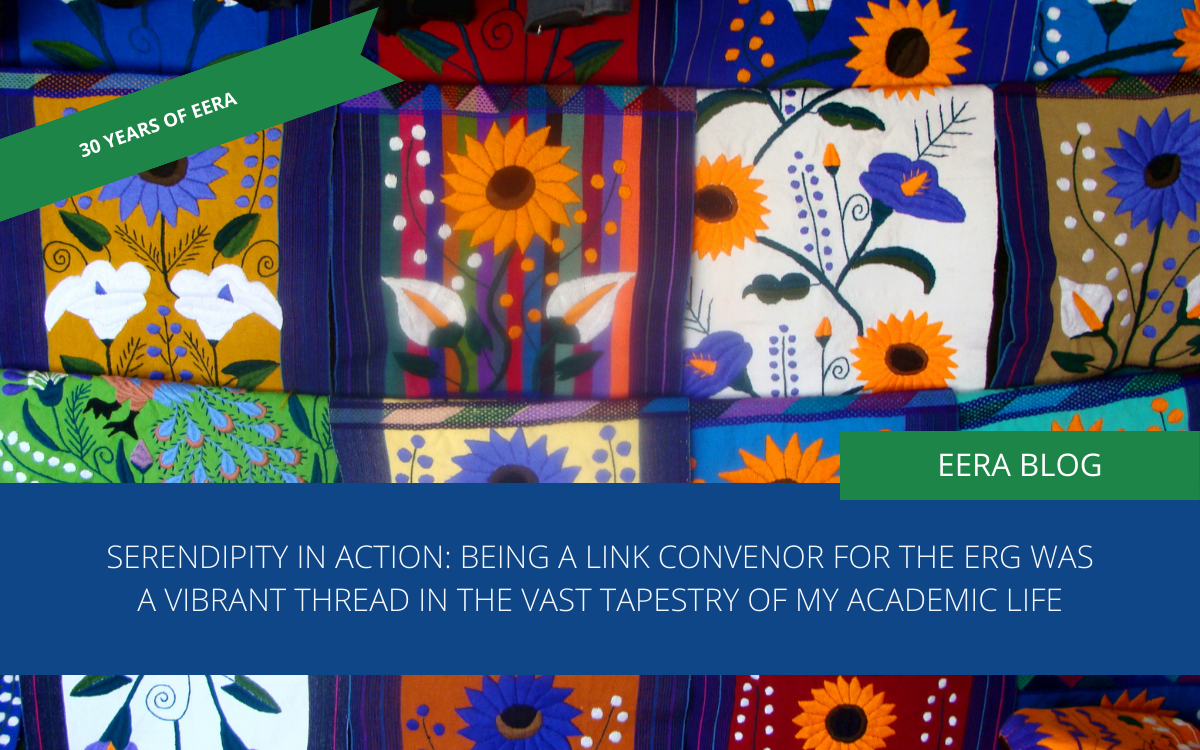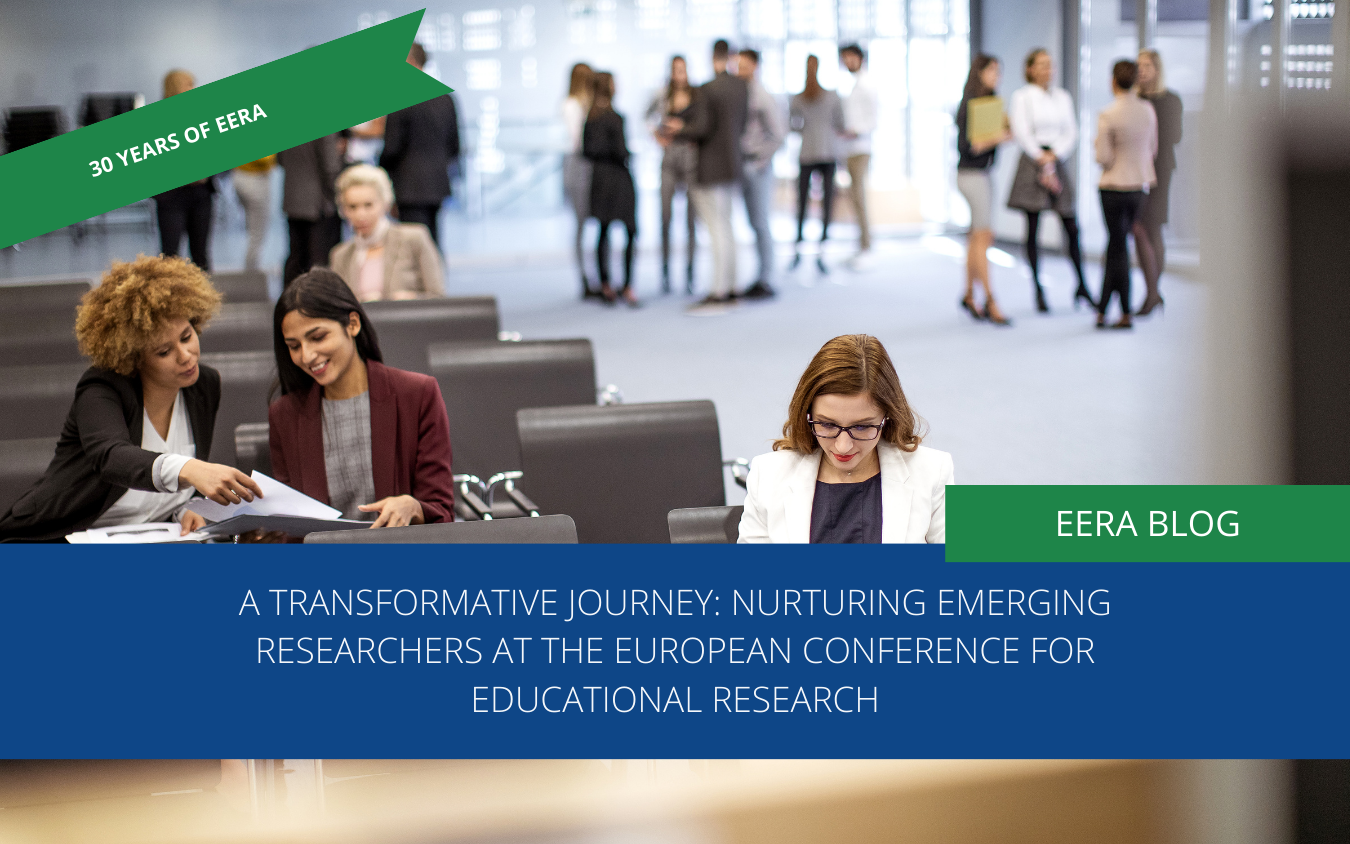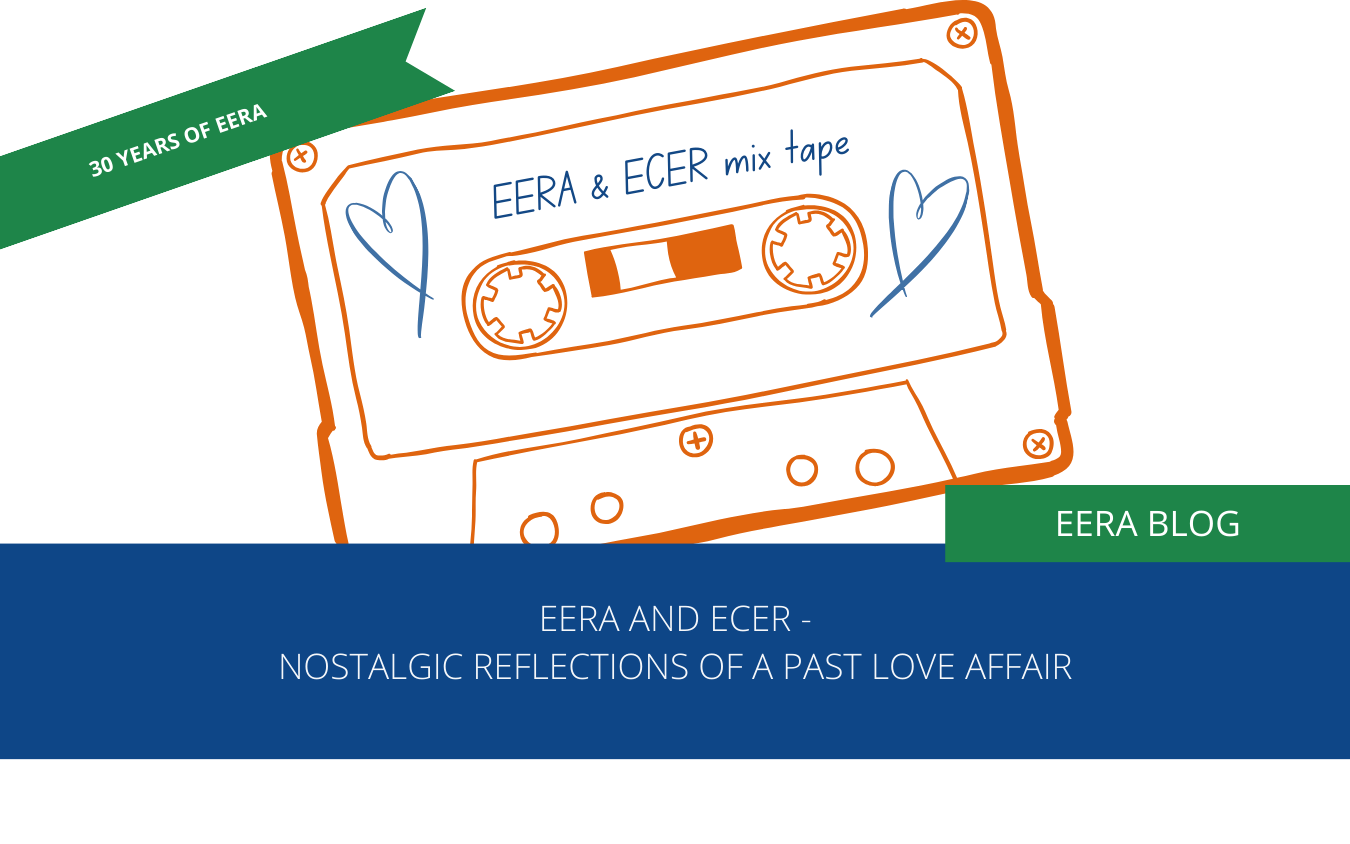EERA is celebrating 30 years in 2024, and as part of our anniversary celebrations, we have invited people who have been at the heart of the association to share their memories and reflections. In a series of blog posts, which will run throughout 2024, we will share those precious memories, from the people who helped foster the global EERA community.
In this blog post, office manager Angelika Wegscheider explains what it is like to steer the ‘spaceship’ of the EERA office, the changes she has seen over the years, and the lessons she’s learned from her time with the organisation.
My journey with EERA started in 2007 when a colleague of mine – in an agency which supported schools in developing extracurricular programmes and partnerships – drew my attention to a vacancy. EERA was to move to Berlin and was looking for someone with confidence in English and technology, who was willing to set up the admin structure from scratch in Berlin, including a website, a new conference management system, the contact to tax accountants, etc. I was invited to an EERA Council Meeting and took minutes as one of my first tasks. When coming home after 1,5 days of discussions, my partner asked, “And, how was it?” And I said, “Probably good. I was kissed goodbye by the crème de la crème of European Educational Research”. There was, indeed, a lot of hugging and friendship in this first Council Meeting which I participated in, and while there were also some hard discussions, I had the feeling EERA would be a good place to work in. While people have changed, the atmosphere has remained.
The EERA office – a spaceship, always ready for liftoff
Most of the tasks in the first one or two years were centred around moving the association from Scotland to Germany and getting it re-started in Berlin. With a team set up in Berlin, the first Council Meetings held under the new constitution, the website set up, and the first conference being managed via the new software, the EERA office started to take on more responsibilities for supporting EERA executives in their roles and with their agendas.
But what is it like to work for an association, with an everchanging executive committee, where every other year, someone new comes in? With superiors who are “volunteers”, each of them defining their roles a bit differently, none of them being close at hand? The EERA office is like a spaceship that journeys from Council Meeting to conference to network meetings and back again. There are only four of us in the crew, and we only touch base with those with and for whom we are working when we have meetings. These meetings are then cheerful events, including hugs and being kissed goodbye. Our superiors are mostly not from Germany, so every now and then, we need to explain things that are usually clear, common ground for cooperation, or working procedures, e.g., the German tariff system before a decision on wages for new colleagues is taken. The relationship between the EERA executives and the EERA office is based on friendship and trust – and it is somewhat odd, as usual power relations are turned upside down in some ways.
EERA executives have often claimed that the EERA office is “the living history” of the association, a vital backbone to its development and existence. While this is true in some ways, the EERA office does not have steering powers as such, and it needs to adapt to new executive officers, their policies, focus, and working procedures. Administration can be both the key to making things happen and the barrier to the very same. I have always felt a tension between an admin-way of thinking and a strategic one, as any admin answer to “Is this doable?” always depends on the priorities according to the strategy of those who set the agenda for the association. Especially in associations that are largely supported by voluntary work, the (paid) administration needs to be sensitive to its role – on the one hand, keeping things running and on the other hand, staying open to new initiatives. While the EERA office does not have a formal vote, it has power through the voice that the EERA executives are willing to give it.
The visible and non-visible changes of EERA
EERA has gone a long way since its inception 30 years ago and the formal reboot in 2007, since which time I have been witnessing its development. An annual meeting of network link convenors was introduced, a summer school was developed, and a scheme for funding small-scale projects of EERA networks was set up. Not too long ago, a Blog was launched, academic writing workshops were introduced, EERA executives gave workshops on how to set up a research association, and they teamed up with other research associations in order to impact EU funding policies. These are only the visible developments, but non-visible activities were also set up, tested, changed and reinvented: office development talks, preparation procedures for Council, exec and network meetings, etc. A lot is necessary to let an association grow!
In many of these activities, the EERA office had some role in developing structures and templates, and in helping things take off. When working with the EERA executives, the office grew from doing things we were tasked with, to reminding EERA executives of deadlines and duties, and even to partially advise them on their roles. This development was a discreet one, hardly noticeable while it was going on, but oddly remarkable at some point.
I was once on a training for Non-Profit Management. I had witnessed my first couple of changes in the Executive Committee and felt that probably not much new would come for my role. The trainer there said to me, “It will take you at least five more years to really understand the association and what you learn in there.” Right, she was!
The lessons EERA taught me
What I learned from working with EERA is to stay open for changes, even if it may feel like I do have all good experiences on my side. I learned to understand that people need to “own” decisions in order to adhere to them. I have seen different ways of managing meetings, and have seen German, Nordic, Dutch, and Irish ways of negotiating and preparing decisions.
The role of the EERA office and the office manager is colourful, changing, and often challenging, but usually rewarding. At the conference, the colleagues at the EERA Desk are the first ones to receive complaints, but also the first ones to receive chocolates from Kazakhstan, Strop Wappels from the Netherlands, and that personal “thank you” for a helping hand during the submission process. The ECER / EERA people are a lovely crowd!
I bow to the presidents, from whom I learned the beauty of different styles and approaches and how much good it does an organisation to have to undergo these changes. I send love to all the general secretaries, who always had an open ear and heart for the EERA office and its needs. I thank the treasurers, who made me work with numbers and think in financial matters, and the network representatives on the council, who trusted the office in dealing with network convenors and their specific requests. I send my respect to all who gave and give their time voluntarily to support EERA and its activities: the Network Link Convenors, the Council Members, the hundreds (thousands over the years) of reviewers and chairpersons for ECER, the EERA Summer School hosts, the organisers of Network Projects, the authors of EERA Blog posts, and each and every person who has submitted to, and participated in ECER over its 30 years.
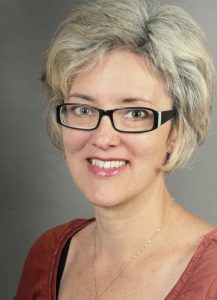
Angelika Wegscheider
EERA Office Manager
Angelika Wegscheider has been working with EERA since May 2007. After her degree in Sociology and Political Sciences, she worked for diverse NGOs and projects linked to fostering entrepreneurial thinking in schools in Brandenburg, strengthening universities’ information strategies for international students, and, in the early 2000s, bringing political communication to the digital times. Her current interests are in organizational development and handover procedures in associations which depend on volunteers.

